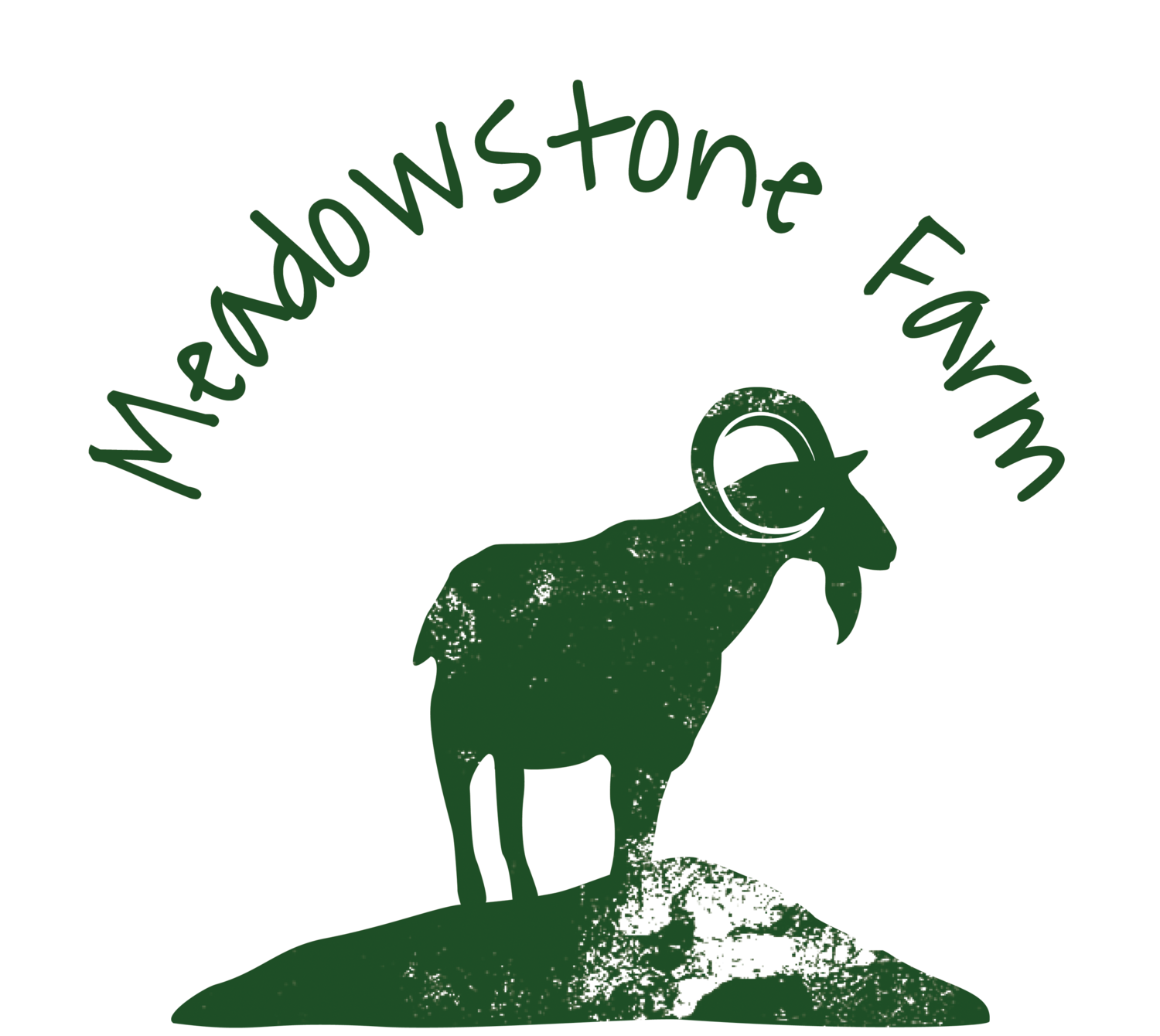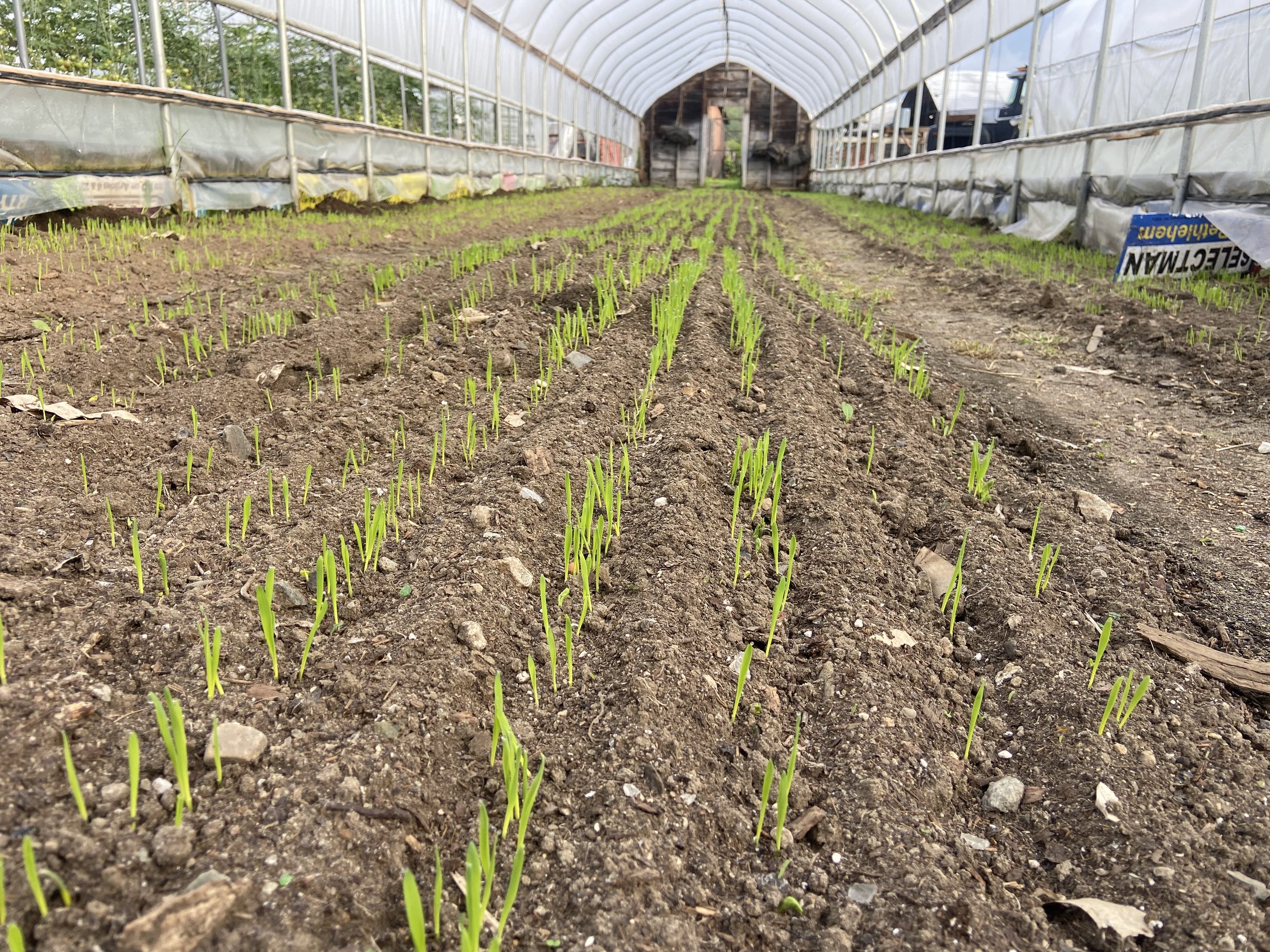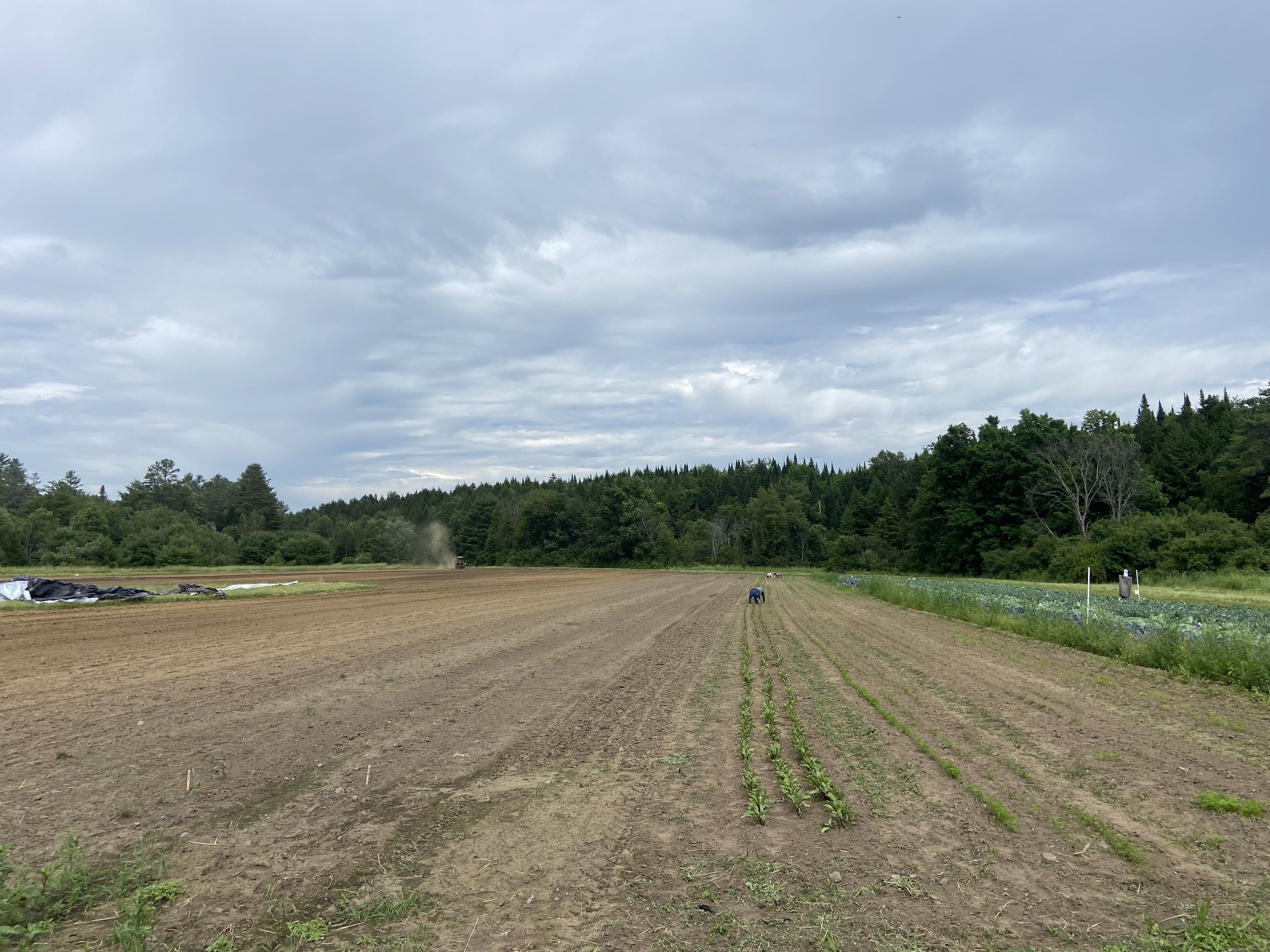A week after a school group came to the farm for a visit, we received this rock from an attentive 6 year old who drew this picture of mycelium in the soil with plants above.
This rock lives in and around the farm desk and reminds us of the soil we nurture, our most important asset after your Meadowstone Farm farmers.
Tim's Soapbox: Dirt vs. Soil
When school groups visit the farm some of the first words I have them define are soil and dirt. Dirt is a lifeless entity composed of only physical and chemical characteristics that gets under you fingernails and on your pants, and is the basis for most of commercial agriculture. Soil, in addition to the physical and chemical aspects, also harbors an infinite amount of biological activity. For us at Meadowstone soil is alive and thriving and all decisions are made through a lens of improving soil health.
We accomplish this in numerous ways, but essentially we minimize tilling and disturbance and add significant amounts of organic material (carbon). Tilling is one place where philosophy collides with reality in that as much as try to minimize it, we use it as a last resort to decrease weed pressure. Before tilling we use our flame weeder and silage tarps to kill weeds but occasionally we lose the window for those methods. If we till, we try to keep the disturbance to the top couple inches but occasionally have to use more aggressive measures to reset a bed. Every time we till we recognize that we are releasing nutrients and carbon from the soil, which ultimately means we need to replenish those.
Regarding organic matter, the forests of the northeast are our inspiration in that billions of tons of biomass are generated each year and nothing is added except organic matter(carbon) in the form of leaves and dead trees. No fertilizers, no chemicals, only leaves and woody matter. These leaves are the fuel that stokes the biological activity in the soil. The biological activity and inter-relationships of bacterial, insects, fungi and plants is infinitely complex and only beginning to be fully recognized, let alone understood. These interdependent relationships release and provide the nutrients to the plants.
We add organic matter to our soil in numerous ways. We make our own compost from the animal manures, food waste and spent brewers grain, which gets spread on a rotating basis throughout our gardens. We use cover crops(oats, peas, beans, rye, clover, vetch, sudan grass, buck wheat) extensively in all our gardens and greenhouses. We also collect grass clippings (a great source of nitrogen) from our lawns to mulch around plants and in paths. The town of Bethlehem and local contractors bring us wood chips and leaves which we also use around plants, but especially in paths to not only add organic matter but also reduce weed pressure.
Soil is complex and very different from "dirt" and is the basis for our philosophy at the farm: Feed the soil and the soil will feed the plants.
The picture is taken in one of our gardens and shows the root system of a 4 week old bell bean plant. The beans are legumes and work hard fixing nitrogen from the air and making it available to the next crop. The little white balls on the roots are nitrogen nodules. Nitrogen is essential for plant growth and legumes like beans, peas, and vetch are crucial for us to maintain healthy plants. Interplanted bell beans in GH4 nurtures the soil while our cherry tomatoes thrive.
Moments from the week
The direct seeded Oats, Peas, Beans coming up in GH2 will be turned back into the soil in August adding nitrogen and organic matter into the soil for some fall greens.
The Oxbow has required some serious hand weeding. We have settled in this past week pulling all weeds from the beets and carrots. The space between the rows can be cultivated using the basket weeder: check out the video below!
Evrald Basket weeding at the Oxbow
Pickup
Come anytime between 3 pm and 6 pm to choose your share on the day you chose when you signed up, so either Monday or Thursday.
Please bring your own bags or box to gather your choices.
If you signed up for an add-on, there will be a shelf with eggs, and pork sausage for you to take. The PYO and Bouquet flower CSA starts in late July, when the patch starts blooming in earnest!
Remember to contact us in advance if you will be unable to pick up on Thursday, so that we can store your share in our walk-in refrigerator to keep it fresh. You can email or call us to let us know. Thank you to all of those who have already arranged another time to pickup!
Here's what you will find in this weeks share:
Full shares receives 12 choices
Small shares receives 8 choices.
WANT SOME RECIPE IDEAS?
CHECK OUT THE CSA RECIPE PAGE!
Enjoy! Thank you for supporting local agriculture. See you Thursday if not before.
Your Farmer,
Sam (For Tim, Matt, Mikaela, Jeannie, Jim, Jaime, Evrald, Shawn, Colin, Jessie, Ani, Wyatt, and Claira)









